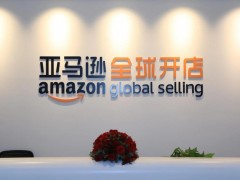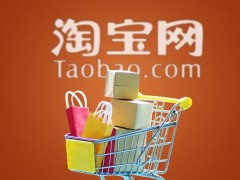Examples of corporate economic behavior?
11月23日,中共中央对外联络部和中共浙江省委共同在杭州举行“中国共产党的故事——推动高质量发展”专题宣介会。出席会议的中方领导有中共中央对外联络部部长宋涛、浙江省委书记车俊等,与会嘉宾包括80多个政党的近400名外国政党领导人和代表。
习近平总书记高度重视发展数字经济,阿里巴巴是中国数字经济快速发展的企业代表,阿里巴巴集团副总裁、阿里研究院院长高红冰受邀参会并分享阿里巴巴创新的故事。会上,高红冰表示:“阿里巴巴是一个民营经济创新的故事,也是一个数字经济创新的故事。阿里巴巴是改革开放的受益者、实践者,阿里巴巴是‘八八战略’的受益者、实践者。阿里巴巴愿意与全球分享自己的经验,跟在座的国家和地区一起合作,一起享受数字经济所带来的红利。”
高红冰介绍,19年前马云等18人在杭州创立阿里巴巴,帮助小企业、年轻人开展生意,并把“让天下没有难做的生意”作为阿里巴巴的使命。
2016年,按每年交易额计算,阿里巴巴超过沃尔玛,成为全球最大的零售平台。在此后的两年里,阿里巴巴的交易额仍然快速增长。
2018财年达到4.8万亿元(相当于7680亿美元)。
阿里巴巴持续实现商业创新,服务1000万小企业和6亿消费者。从1999年创立开始,阿里巴巴不断推出新业务,涵盖电子商务、科技金融、智慧物流、云计算、大数据等。
2018年“双十一”(11月11日),阿里巴巴平台交易额达到2135亿元(约合307亿美元),创历史新高。过去十年,每年“双十一”的交易额不断突破历史记录,集中体现了阿里巴巴的商业创新,用新技术、新组织方式,实现大规模商业协作。
高红冰表示,阿里巴巴不仅是一个商业创新的故事,也是高科技创新的故事。阿里巴巴用了13年的时间实现年交易额突破3万亿元,而沃尔玛用了50多年。 “双十一”交易额不断突破记录,倒逼阿里巴巴进行了大量技术创新,包括独立开发云计算平台、建设量子计算实验室、研发区块链技术等。今天,阿里巴巴把这些创新技术用到了浙江的经济建设上,用到了全国企业的经营创新上,用自己的技术帮助别人成功。
阿里巴巴不仅是一个中国的故事,也是一个全球化的故事。阿里巴巴通过Alibaba、速卖通、Lazada等平台,帮助全球小企业、消费者开展贸易,使用云计算、数字支付、物流等服务,用户遍及200多个国家和地区。阿里巴巴不断推动电子商务电子支付在全球扩展,支付宝在中国成功以后,也把自己的技术商业经验等复制到印度、泰国、菲律宾,孟加拉国等九个国家和地区,帮助他们服务当地的老百姓和当地的商户,支持他们进行数字经济创新。
高红冰提出,阿里巴巴全球化的同时,进一步帮助国外的品牌商进入中国市场。中国是一个巨大的消费市场,有六亿的消费者通过互联网购买商品,其中90后、95后占到45%。从2001年到2017年,阿里巴巴帮助75个国家近19000个品牌进入中国市场,其中80%以上是首次进入中国市场。未来五年,阿里巴巴将进口2000亿美元商品,帮助更多国家的特色商品进入中国市场,满足中国消费者的需求。
阿里巴巴不仅是一个商业创新的公司,还是一个推动普惠发展的公司。阿里巴巴致力于帮助年轻人和小企业创新、创业、创造。
2017年,阿里巴巴零售平台为中国创造3681万个就业机会。过去一年,阿里巴巴为165万名建档立卡贫困人口提供健康保险。阿里巴巴支持超600万名女性电商创业。阿里巴巴支持残疾人创业,超过31.6万人,他们总成交金额超过100亿元。到2036年,阿里巴巴希望服务20亿消费者、1000万盈利的小企业、创造1亿个就业机会。“在这些发展的背后,我们未来要帮助这些年轻人和小企业更好地实现他们的梦想。阿里巴巴是一个小、微企业创新的舞台,他们的梦想都将在这个平台上得以实现。”
阿里巴巴不仅是一个中国的故事,也是一个杭州的故事。阿里巴巴有一系列的创新,包括商业的创新、技术的创新、全球化的创新、小企业的创新,之所以能够快速发展,都是因为中国的改革开放。高红冰表示:“阿里巴巴是中国改革开放的受益者。我们也是它的一个推动者,但是更重要的是阿里巴巴生于浙江,生于杭州,这块沃土给了我们基因,给了我们种子,给了我们巨大的力量不断创新。”
Professional answer
On November 23, the International Liaison Department of the CPC Central Committee and the CPC Zhejiang Provincial Committee jointly held a special promotion meeting in Hangzhou on "The Story of the Communist Party of China - Promoting High-quality Development". The Chinese leaders attending the meeting included Song Tao, Minister of the International Liaison Department of the CPC Central Committee, and Che Jun, Secretary of the Zhejiang Provincial Party Committee. The guests included nearly 400 foreign party leaders and representatives from more than 80 political parties.
General Secretary Xi Jinping attaches great importance to the development of the digital economy. Alibaba is a representative of the rapid development of China's digital economy. Gao Hongbing, Vice President of Alibaba Group and Dean of Alibaba Research Institute, was invited to attend the meeting and share the story of Alibaba's innovation. At the meeting, Gao Hongbing said: "Alibaba is a story of innovation in the private economy and a story of innovation in the digital economy. Alibaba is a beneficiary and practitioner of reform and opening up, and Alibaba is a beneficiary and practitioner of the '88 Strategy'. Alibaba is willing to share its experience with the world, cooperate with the countries and regions present, and enjoy the dividends brought by the digital economy together."
Gao Hongbing introduced that 19 years ago, Jack Ma and 18 others founded Alibaba in Hangzhou to help small businesses and young people start businesses, and set "making it easy to do business in the world" as Alibaba's mission.
In 2016, Alibaba surpassed Walmart to become the world's largest retail platform in terms of annual transaction volume. In the following two years, Alibaba's transaction volume continued to grow rapidly.
It reached 4.8 trillion yuan (equivalent to 768 billion US dollars) in fiscal year 2018.
Alibaba continues to achieve business innovation, serving 10 million small businesses and 600 million consumers. Since its establishment in 1999, Alibaba has continuously launched new businesses covering e-commerce, technology finance, smart logistics, cloud computing, big data, etc.
On "Double Eleven" (November 11) in 2018, the transaction volume of Alibaba platform reached 213.5 billion yuan (about 30.7 billion US dollars), a record high. Over the past decade, the transaction volume of "Double Eleven" has continuously broken historical records every year, which is a concentrated reflection of Alibaba's business innovation, using new technologies and new organizational methods to achieve large-scale business collaboration.
Gao Hongbing said that Alibaba is not only a story of business innovation, but also a story of high-tech innovation. It took Alibaba 13 years to achieve an annual transaction volume of more than 3 trillion yuan, while Walmart took more than 50 years. The transaction volume of "Double Eleven" continued to break records, forcing Alibaba to carry out a lot of technological innovations, including the independent development of cloud computing platforms, the construction of quantum computing laboratories, and the research and development of blockchain technology. Today, Alibaba has used these innovative technologies in Zhejiang's economic construction and in the business innovation of enterprises across the country, using its own technology to help others succeed.
Alibaba is not only a Chinese story, but also a global story. Alibaba helps small businesses and consumers around the world to conduct trade through platforms such as Alibaba, AliExpress, and Lazada, using cloud computing, digital payment, logistics and other services, with users in more than 200 countries and regions. Alibaba continues to promote the global expansion of e-commerce and electronic payment. After Alipay succeeded in China, it also replicated its technical and commercial experience to nine countries and regions including India, Thailand, the Philippines, and Bangladesh, helping them serve local people and local merchants and support them in digital economic innovation.
Gao Hongbing proposed that while Alibaba is globalizing, it will further help foreign brands enter the Chinese market. China is a huge consumer market with 600 million consumers purchasing goods through the Internet, of which 45% are born in the 1990s and 1995s. From 2001 to 2017, Alibaba helped nearly 19,000 brands from 75 countries enter the Chinese market, of which more than 80% entered the Chinese market for the first time. In the next five years, Alibaba will import $200 billion worth of goods and help more countries' specialty goods enter the Chinese market to meet the needs of Chinese consumers.
Alibaba is not only a company of business innovation, but also a company that promotes inclusive development. Alibaba is committed to helping young people and small businesses innovate, start businesses and create.
In 2017, Alibaba's retail platform created 36.81 million jobs in China. In the past year, Alibaba provided health insurance for 1.65 million registered poor people. Alibaba supported more than 6 million women to start e-commerce businesses. Alibaba supported more than 316,000 people with disabilities to start businesses, and their total transaction amount exceeded 10 billion yuan. By 2036, Alibaba hopes to serve 2 billion consumers, 10 million profitable small businesses, and create 100 million jobs. "Behind these developments, we will help these young people and small businesses realize their dreams better in the future. Alibaba is a stage for innovation of small and micro enterprises, and their dreams will be realized on this platform."
Alibaba is not only a Chinese story, but also a Hangzhou story. Alibaba has a series of innovations, including business innovation, technological innovation, globalization innovation, and small business innovation. The reason why it can develop rapidly is because of China's reform and opening up. Gao Hongbing said: "Alibaba is a beneficiary of China's reform and opening up. We are also a promoter of it, but more importantly, Alibaba was born in Zhejiang and Hangzhou. This fertile soil gave us genes, seeds, and great power to innovate continuously."
Similar Q&A
recommend How to get the first order from a new AliExpress store?
E-c News Continuously pushing e-commerce knowledge to you








Latest Q&A More
-
Do I need a trademark to open a franchise store on Pinduoduo to sell books?
#Pinduoduo#
-
How to withdraw from a Pinduoduo store
#Pinduoduo#
-
How to withdraw from Pinduoduo merchants
#Pinduoduo#
-
How to pay fees when closing a Pinduoduo store
#Pinduoduo#
-
How to withdraw from Pinduoduo
#Pinduoduo#
-
Which store on Pinduoduo is authentic?
#Pinduoduo#
-
Which stores on Pinduoduo can buy genuine products?
#Pinduoduo#
-
How to check the store under Pinduoduo
#Pinduoduo#
-
How to receive Pinduoduo online game products
#Pinduoduo#
-
How to sell the electronic version on Pinduoduo
#Pinduoduo#
E-c News 2026-01-02 06:57:43

- African netizens use China Africa cross-border e-commerce platform for online shopping
- how is the new seller of cross-border e-commerce doing?
- how can cross-border e-commerce Amazon sell on Amazon platform without goods?
- Amazon store opening process and cost analysis!
- Amazon plans to expand its pharmacy business on a large scale and will add same day delivery service
